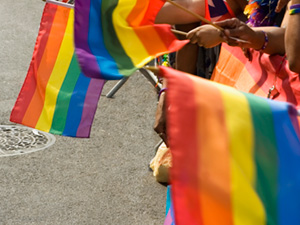Language: Greek
Climate: Greece basks under clear, sunny skies for more than two-thirds of the year. Temperatures do vary, however. Winters are mild and rainy, with temperatures sometimes dropping to the freezing point, especially in the north. Summers are long and dry. For those not overly fond of the heat, the mountainous areas offer some respite as they receive more rain in summer, and even snow in winter.
Time Zone: EST – Eastern European Time
International phone code: 30
Currency: Euro
Capital: Athens
Transportation: Athens handles the vast majority of flights, including all intercontinental traffic. Greece has an extensive domestic air network, with the majority of flights handled by Olympic Airways and its offshoot, Olympic Aviation. Roads are fairly good and on the main roads signs are written in the Roman alphabet as well as the Greek one. Off the beaten track, signs are often only in Greek and you will need a working knowledge of the Greek alphabet to find your way. Trains are cheap but slow, with the exception of the express trains. The port of Athens is the main gateway to the Aegean islands, and many nearby islands and points on the Peloponnese coast are served by hydrofoils. Up-to-date timetables are published monthly by the Greek National Tourist Office.
Gay Greece:
Having practically invented homosexuality, one might assume that attitudes towards the gay population in Greece would be open-minded. But, while Greek society is tolerant on many issues, gay rights is not one of them.
Still, Greece remains one of the most popular gay vacation destinations in the world. Mykonos, Lesbos, Malia in Crete, Kavos in Corfu, Faliraki in Rhodes, and the Gazi neighbourhood in Athens are packed with gay-friendly hotels and clubs and queer travellers can expect to be treated well.
However, gay tourism has dropped in recent years because of discrimination, according to surveys by Amsterdam-based OutNow Consulting. But with tourism accounting for about 16 percent of the economy, debt-ravaged Greece has taken steps to boost inclusivity in their tourism trade under President Andreas Papandreou.
Papandreou has also been responsible for a legislative proposal recognizing unmarried couples, both homosexual and heterosexual, following the French example of the Pacte civil de solidarité (PAC, see France). Even the head of the ultra-conservative Orthodox Church of Greece, Archbishop Ieronymos II, responded positively to these proposals, saying, "There is a need to change with the time."




S(11cq5s45gwmbx345w3zfuj2g))/content/user/images/Dest/181/17971-140-115.jpg)
S(11cq5s45gwmbx345w3zfuj2g))/content/user/images/Dest/21/9848-140-115.png)
S(11cq5s45gwmbx345w3zfuj2g))/content/user/images/Dest/268/11970-140-115.jpg)
S(11cq5s45gwmbx345w3zfuj2g))/content/user/images/Dest/124/22336-140-115.jpg)
S(11cq5s45gwmbx345w3zfuj2g))/content/user/images/Dest/101/22219-140-115.png) Athens
AthensS(11cq5s45gwmbx345w3zfuj2g))/content/user/images/Dest/79/21994-140-115.jpg) Mykonos
Mykonos